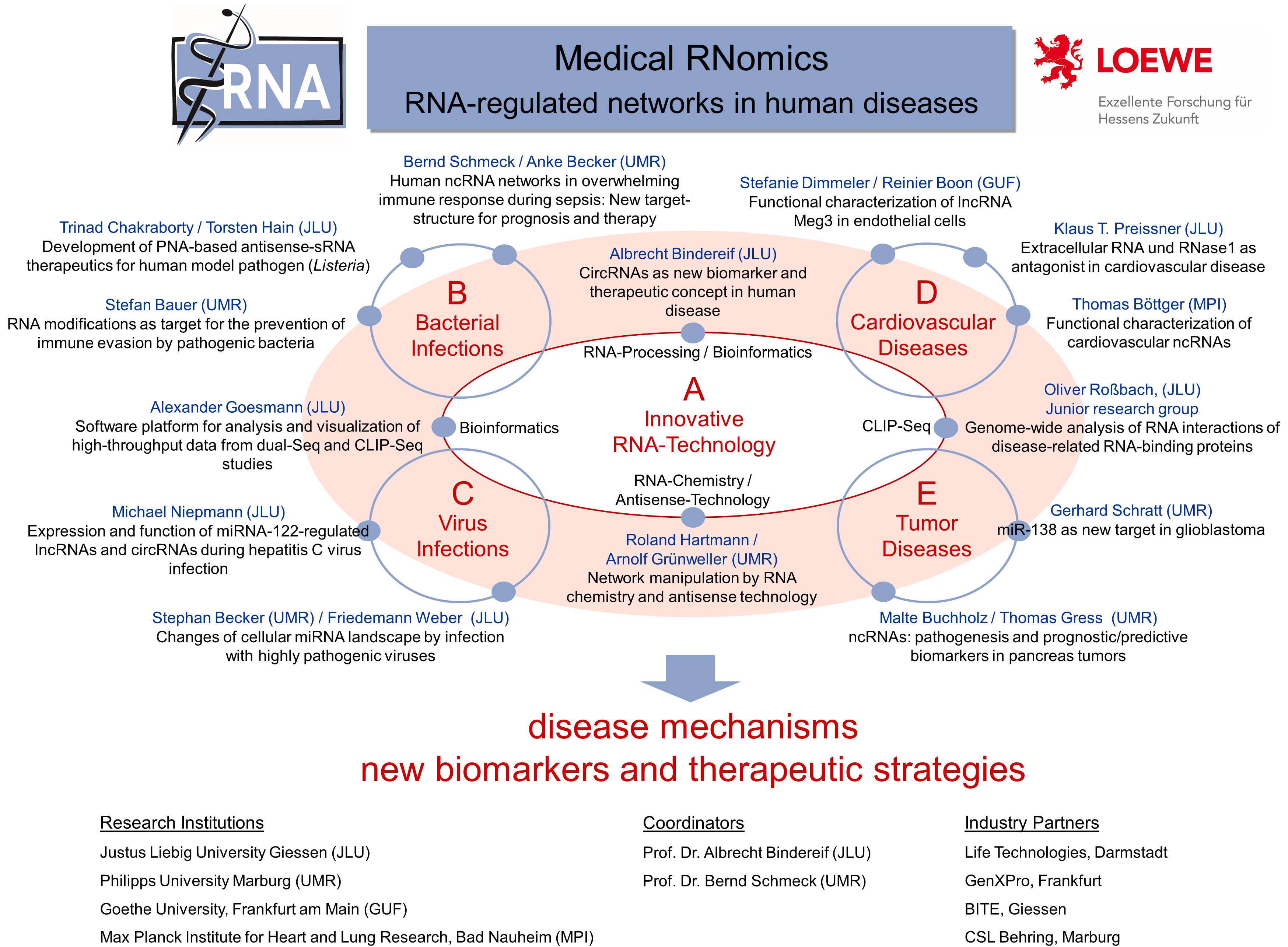Medical RNomics: RNA-regulated networks in human diseases (2015-2018)
LOEWE (= Landes-Offensive zur Entwicklung Wissenschaftlich-ökonomischer Exzellenz)
is a program for promoting cutting-edge research in the federal state of Hessen. Scientific excellence, economic-social relevance (such as academic-industry cooperations), and long-term perspectives are key factors in this program. Our Research Cluster Medical RNomics (coordinators: Prof. Albrecht Bindereif, Giessen, and Prof. Bernd Schmeck, Marburg) is funded by a grant of the LOEWE program with 5.1 mio Euro over four years (2015-2018).
Biomedical research in the last decade experienced dramatic changes and advances through the discovery of novel regulatory RNAs. It became clear that important regulatory mechanisms operate on the RNA level. Accordingly, misregulation in RNA-dependent gene expression often causes human disease. These advances were largely driven by the rapid development of new sequencing technologies of nucleic acids (next-generation sequencing), which –in combination with the essential bioinformatic analysis- uncovered new classes of noncoding RNAs, revealing their interactions and to some extent also their functions. Not individual RNA species are investigated, but entire RNA populations and their underlying networks.
Our LOEWE focus program Medical RNomics applies these new state-of-the-art sequencing and bioinformatic technologies to systematically explore pathological changes of disease-related RNA networks, with the overall aims to uncover new disease mechanisms, search for and extract new RNA-based diagnostic biomarkers, and to develop new therapeutic strategies (for the overall organization and group composition of Medical RNomics, see Figure below). These systemwide approaches center in four disease areas: bacterial (B) and viral (C) infections, cardiovascular (D) and tumor (E) diseases. Research in the disease areas is supported by innovative RNA technologies and RNA bioinformatics (A). Regarding regulatory RNAs, our research concentrates on the most prominent noncoding RNA classes of current interest: microRNAs (miRNAs), long noncoding RNAs (lncRNAs), circular RNAs (circRNAs), as well as bacterial small RNAs (sRNAs).
To achieve these ambitious goals, 14 groups from the universities of Giessen, Marburg, and Frankfurt, as well as from the Max-Planck-Institute for Heart and Lung Research in Bad Nauheim, with respective special expertise in RNA technologies / bioinformatics and the four disease areas interact with each other and collaborate in Medical RNomics. In addition, several industrial partners support our core of academic and clinical research groups.

